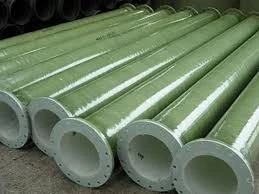
-
 Afrikaans
Afrikaans -
 Albanian
Albanian -
 Amharic
Amharic -
 Arabic
Arabic -
 Armenian
Armenian -
 Azerbaijani
Azerbaijani -
 Basque
Basque -
 Belarusian
Belarusian -
 Bengali
Bengali -
 Bosnian
Bosnian -
 Bulgarian
Bulgarian -
 Catalan
Catalan -
 Cebuano
Cebuano -
 China
China -
 China (Taiwan)
China (Taiwan) -
 Corsican
Corsican -
 Croatian
Croatian -
 Czech
Czech -
 Danish
Danish -
 Dutch
Dutch -
 English
English -
 Esperanto
Esperanto -
 Estonian
Estonian -
 Finnish
Finnish -
 French
French -
 Frisian
Frisian -
 Galician
Galician -
 Georgian
Georgian -
 German
German -
 Greek
Greek -
 Gujarati
Gujarati -
 Haitian Creole
Haitian Creole -
 hausa
hausa -
 hawaiian
hawaiian -
 Hebrew
Hebrew -
 Hindi
Hindi -
 Miao
Miao -
 Hungarian
Hungarian -
 Icelandic
Icelandic -
 igbo
igbo -
 Indonesian
Indonesian -
 irish
irish -
 Italian
Italian -
 Japanese
Japanese -
 Javanese
Javanese -
 Kannada
Kannada -
 kazakh
kazakh -
 Khmer
Khmer -
 Rwandese
Rwandese -
 Korean
Korean -
 Kurdish
Kurdish -
 Kyrgyz
Kyrgyz -
 Lao
Lao -
 Latin
Latin -
 Latvian
Latvian -
 Lithuanian
Lithuanian -
 Luxembourgish
Luxembourgish -
 Macedonian
Macedonian -
 Malgashi
Malgashi -
 Malay
Malay -
 Malayalam
Malayalam -
 Maltese
Maltese -
 Maori
Maori -
 Marathi
Marathi -
 Mongolian
Mongolian -
 Myanmar
Myanmar -
 Nepali
Nepali -
 Norwegian
Norwegian -
 Norwegian
Norwegian -
 Occitan
Occitan -
 Pashto
Pashto -
 Persian
Persian -
 Polish
Polish -
 Portuguese
Portuguese -
 Punjabi
Punjabi -
 Romanian
Romanian -
 Russian
Russian -
 Samoan
Samoan -
 Scottish Gaelic
Scottish Gaelic -
 Serbian
Serbian -
 Sesotho
Sesotho -
 Shona
Shona -
 Sindhi
Sindhi -
 Sinhala
Sinhala -
 Slovak
Slovak -
 Slovenian
Slovenian -
 Somali
Somali -
 Spanish
Spanish -
 Sundanese
Sundanese -
 Swahili
Swahili -
 Swedish
Swedish -
 Tagalog
Tagalog -
 Tajik
Tajik -
 Tamil
Tamil -
 Tatar
Tatar -
 Telugu
Telugu -
 Thai
Thai -
 Turkish
Turkish -
 Turkmen
Turkmen -
 Ukrainian
Ukrainian -
 Urdu
Urdu -
 Uighur
Uighur -
 Uzbek
Uzbek -
 Vietnamese
Vietnamese -
 Welsh
Welsh -
 Bantu
Bantu -
 Yiddish
Yiddish -
 Yoruba
Yoruba -
 Zulu
Zulu
Durable Fiberglass Pipes for High-Pressure Applications and Reliable Performance
High Pressure Fiberglass Pipe A Modern Solution for Industrial Applications
In today's rapidly evolving industrial landscape, the demand for durable and efficient piping solutions is greater than ever. High pressure fiberglass pipe has emerged as a leading option among various materials commonly used in construction and infrastructure. Its unique properties make it an ideal choice for applications in industries ranging from chemical processing to water treatment.
Fiberglass pipes, composed of glass fibers and resin, offer numerous benefits, particularly in high-pressure environments. One of their standout features is their impressive strength-to-weight ratio. High pressure fiberglass pipes are significantly lighter than traditional materials such as steel or concrete, making them easier to transport and install. This lightweight nature also leads to reduced installation costs, as less heavy equipment is needed for handling and placement.
Another major advantage of high pressure fiberglass pipes is their exceptional corrosion resistance. Unlike metal pipes, which can corrode over time due to exposure to harsh chemicals or environmental conditions, fiberglass does not suffer from rust or degradation. This quality not only extends the lifespan of the piping system but also minimizes maintenance requirements, allowing companies to allocate resources more effectively.
In addition to corrosion resistance, high pressure fiberglass pipes are also resistant to temperature fluctuations. They can handle a broad range of temperatures, making them suitable for transporting hot or cold liquids without the risk of damage. This thermal stability ensures that the integrity of the piping system is maintained, even in demanding conditions.
high pressure fiberglass pipe

Moreover, high pressure fiberglass pipes exhibit excellent flow characteristics. Their smooth inner surfaces reduce friction, which leads to higher flow rates and improved efficiency in fluid transport. This advantage can be particularly beneficial in applications where maintaining pressure and flow is critical, such as in oil and gas pipelines or municipal water systems.
Safety is another critical factor in industrial applications, and high pressure fiberglass pipes excel in this area as well. Their non-conductive properties make them suitable for environments where electrical insulation is necessary, reducing the risk of accidents. Additionally, fiberglass does not shatter or break as easily as ceramic or glass materials, enhancing overall safety during operation.
As industries increasingly prioritize sustainability, high pressure fiberglass pipes align well with eco-friendly initiatives. They can be manufactured with a variety of recycled materials, and their long lifespan contributes to reduced waste. Furthermore, their lower energy requirements for production compared to traditional steel pipes make them a greener choice in the long run.
In conclusion, high pressure fiberglass pipes present a versatile and efficient solution for modern industrial applications. With their lightweight design, corrosion resistance, thermal stability, excellent flow characteristics, and safety benefits, they meet the needs of a wide range of sectors. As industries continue to seek innovative materials that enhance performance and sustainability, the adoption of high pressure fiberglass pipe is poised to grow, making it a pivotal component in the future of piping solutions.
Latest news
-
Exploring the Benefits of Top Hammer Drifter Rods for Enhanced Drilling PerformanceNewsJun.10,2025
-
High-Precision Fiberglass Winding Machine for GRP/FRP Pipe Production – Reliable & Efficient SolutionsNewsJun.10,2025
-
FRP Pipes & Fittings for Shipbuilding - Corrosion-Resistant & LightweightNewsJun.09,2025
-
Premium FRP Flooring Solutions Durable & Slip-ResistantNewsJun.09,2025
-
Premium Fiberglass Rectangular Tanks Durable & Lightweight SolutionNewsJun.09,2025
-
Tapered Drill String Design Guide Durable Performance & UsesNewsJun.09,2025









